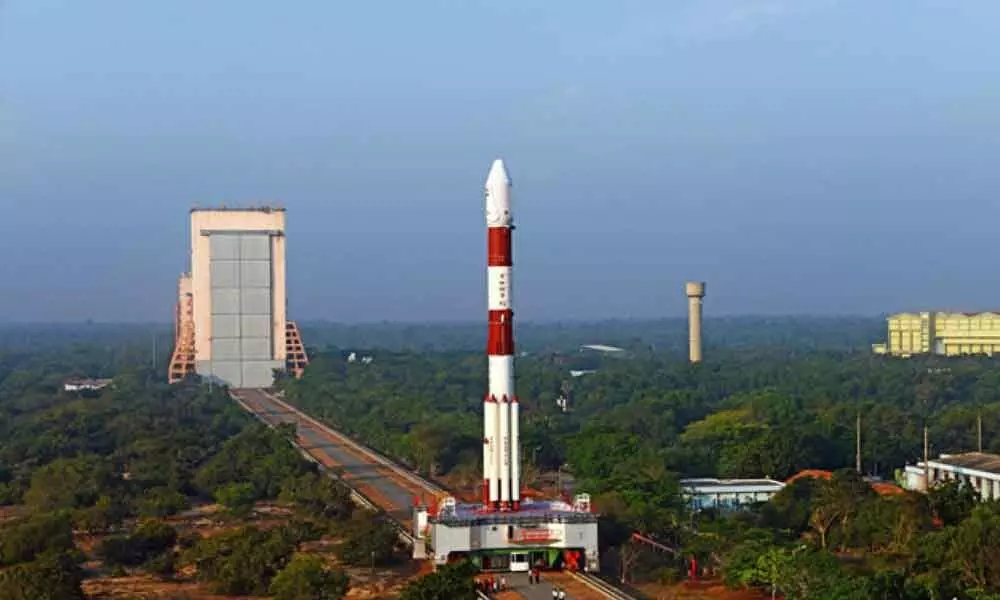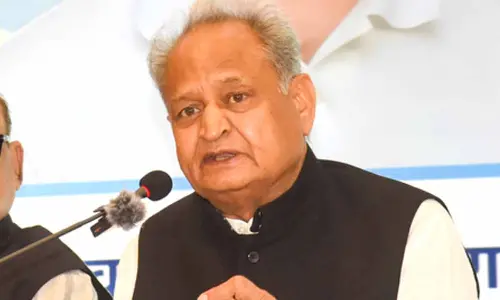India set to touch 328 foreign satellite launches on Saturday

India set to touch 328 foreign satellite launches on Saturday
If all goes well with the Saturday evening rocketing of the Polar Satellite Launch Vehicle (PSLV-C49) then the Indian space agency would have slung a total of 328 foreign satellites, all for a fee.
Chennai:If all goes well with the Saturday evening rocketing of the Polar Satellite Launch Vehicle (PSLV-C49) then the Indian space agency would have slung a total of 328 foreign satellites, all for a fee.
The 26-hour countdown for the Saturday rocket launch from the first launch pad will begin on Friday afternoon. The rocket with 10 satellites is expected to lift off at 3.02 p.m. on November 7 from the Sriharikota rocket port, a senior official of Indian Space Research Organisation (ISRO) told IANS.
The nine foreign satellites are from: Lithuania (1-technology demonstrator), Luxembourg (4 maritime application satellites by Kleos Space) and the US (4-Lemur multi mission remote sensing satellites).
The rocket's primary payload is India's radar imaging satellite EOS-01, formerly RISAT-2BR2 with synthetic aperture radar (SAR) that can shoot pictures in all weather conditions.
The satellite can take pictures day and night and will be useful for surveillance, as well as civilian activities.
It all started in 1999, when India for the first time launched foreign satellites -- South Korea's Kitsat-3 weighing 107 kg and Germany's 45 kg DLR-Tubsat -- as a piggyback luggage on the country's own 1,050 kg Oceansat with the PSLV-C2 rocket.
Since then, over the next two decades, India has launched 319 foreign satellites, including one Chinese satellite -- some on a standalone basis and mostly as a piggyback on India's own satellite.
The ISRO also created a world record of launching largest number of satellites -- 104 satellites out of which 101 were foreign in a single PSLV rocket on 15.2.2017.
According to the Indian government, ISRO has earned Rs 1,245.17 crore during the last five years launching satellites from 26 countries.
During the fiscal 2018-19, the launch income was Rs 324.19 crore up from Rs 232.56 crore earned in 2017-18.
Contracts with 10 countries namely: the US, the UK, Germany, Canada, Singapore, The Netherlands, Japan, Malaysia, Algeria and France were signed in the last five years under commercial arrangements, Union Minister of State in the Department of Space and Department of Atomic Energy Jitendra Singh told Rajya Sabha in December 2019.
Bulk of the foreign satellites lofted by ISRO rocket were small ones, the heaviest foreign satellites that it had put into orbit in 2015 were the three UK satellites UK-DMC 3A, 3B and 3C each weighing 447 kg.
While ISRO which is building a small rocket with a long winding name -- Small Satellite Launch Vehicle (SSLV) to launch satellites weighing upto 500; two start-ups -- Skyroot Aerospace and Agnikul Cosmos Pvt Ltd -- are also in the process of developing small rockets -- Vikram (payload capacity 300 kg) and Agnibaan (payload capacity 100kg), respectively.
Niti Aayog member V.K. Saraswat at an international space conference said that the launch of small satellites will be a dominant factor in the global space sector, as around 7,000 satellites are expected to be up in the skies by 2027.
According to him, low-cost launch of smallsats to LEO will be the focus of global satellite communications.
In all, about 7,000 smallsats are expected to be launched between 2018 and 2027 at a total cost of $38 billion, Saraswat had said.
Be that as it may, the proposed Saturday rocket launch will be the first space mission for ISRO in 2020 from India.
On January 17, 2020, India's telecommunication satellite 3,357 kg GSAT-30 -replacement for INSAT-4A-was successfully launched into a Geosynchronous Transfer Orbit (GTO) on from Kourou launch base, French Guiana by an Ariane rocket.
Last year ISRO Chairman K.Sivan said, the PSLV rocket has lofted 52.7 ton, out of which 17 per cent consists of customer satellites.
However, this time around, ISRO is silent even on the innocuous weight of the country's radar imaging satellite and that of the foreign payloads.














